Five Delicious Traditional Fiji Dishes
Fiji’s traditional cuisine relies heavily on foods available naturally on the island. As a result, their delicious dishes are usually made from fish and seafood, coconuts, root vegetables such as cassava and taro, other crop vegetables, citrus fruits and some chicken, pork and lamb.
Many dishes use coconut milk, which adds a delicious, rich tropical flavor. Some dishes have fresh chilies, adding a bit of a punch, though mild by Indian or Thai standards. But most Fijian foods are very mild – some might even say bland.
I’ve traveled around Fiji for two months thus far and have tried as many different local dishes as possible. Here are 5 delicious traditional Fijian meals that I especially enjoyed.
Be sure to sample these when you visit!
Kokoda (pronounced ‘ko kon da’)
This is my absolute favorite Fijian dish. It is raw fish marinated in lime then served in a fresh coconut milk concoction. The coconut broth is enhanced with raw cucumbers, onions and a dash of chilies. It is superb.
If you’re a fan of sushi or sashimi, you must try kokoda in Fiji! I suggest ordering it with fried cassava. It’s such a great combination.
Cassava and Taro
Both cassava and taro are roots, similar to potatoes but with their own distinct flavors and textures.
These two root veggies are the main staples of the Fiji diet, so you’ll find cassava or taro served with most meals, including kokoda.
Cassava and taro (more commonly called dalo in Fiji) are served either boiled or fried. The fried versions are first boiled and then lightly fried in oil, with an end result quite similar to french fries – aka ‘chips’ in British English.
Personally, I much prefer cassava to taro and fried cassava to boiled. I find the boiled versions of both rather bland and hard to eat in quantity. (Imagine eating boiled potatoes without any butter, sour cream, cheese, salt or pepper – potato only – and you’ll get the idea).
But try cassava and taro each boiled and fried for yourself to see which you prefer. They are certainly easy to find in restaurants and resorts all over Fiji.
Palusami
Palusami consists of taro leaves boiled then mashed into a fine, rich vegetable curry of sorts, though without any spices or chilies. It tastes so much like stewed spinach that for months I thought that’s what I’d been eating until I started asking questions. If you’re a spinach fan, you’ll love palusami.
It’s served plain with coconut cream smeared on top or else with lamb chunks thrown in. Both are very tasty.
Cooked fish
Not surprisingly, fish is the most popular animal protein eaten in traditional Fijian cuisine. Many species of fish are caught and eaten. Besides raw kokodo dishes, fish is prepared in a variety of ways: fried, grilled, smoked, steamed and served in coconut cream.
In local restaurants around Fiji I most frequently see fish steamed and served in coconut sauce or else deep fried, a la ‘fish n chips’.
Baigan Valo
This dish consists of halved eggplants stuffed with fish, topped with coconut cream then steamed. It might sound like an odd combination, but it’s absolutely delicious.
QUESTION:
Which of these traditional dishes do you think you’d enjoy?
————————————————————————–
You might also like:
10 Surprising Facts About Fiji
——————————————————————————————————————————————-






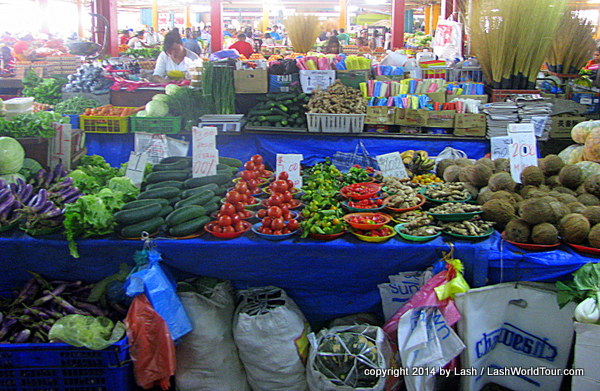
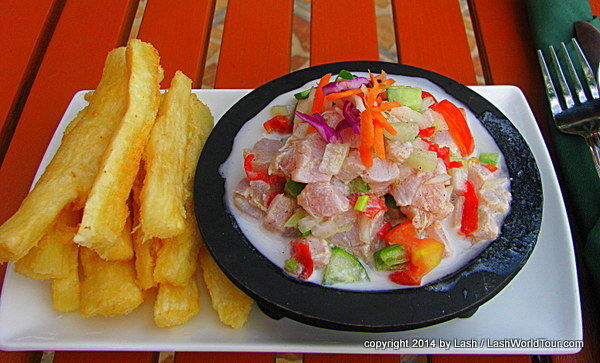
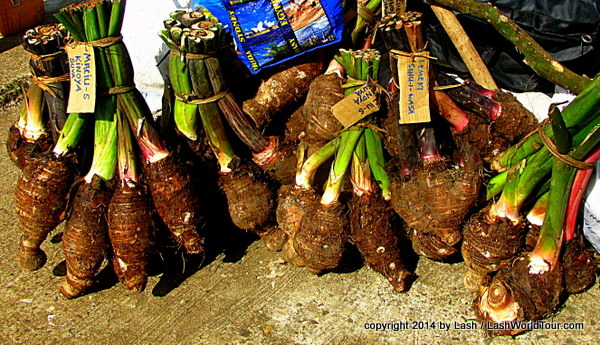
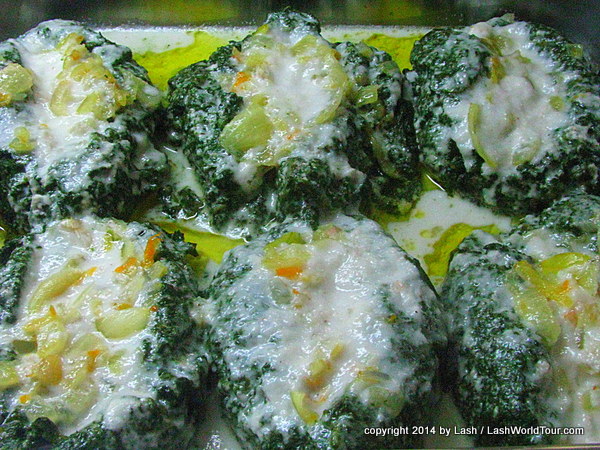
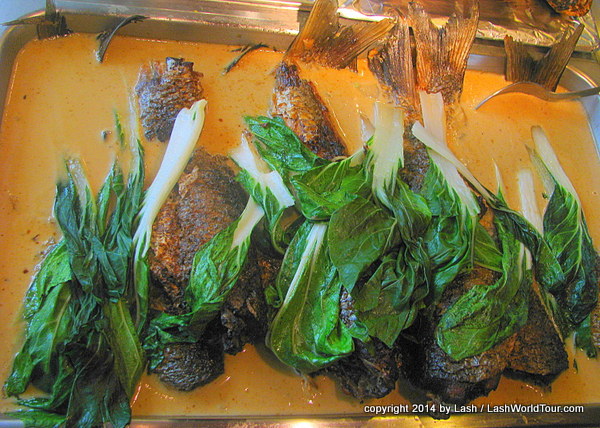
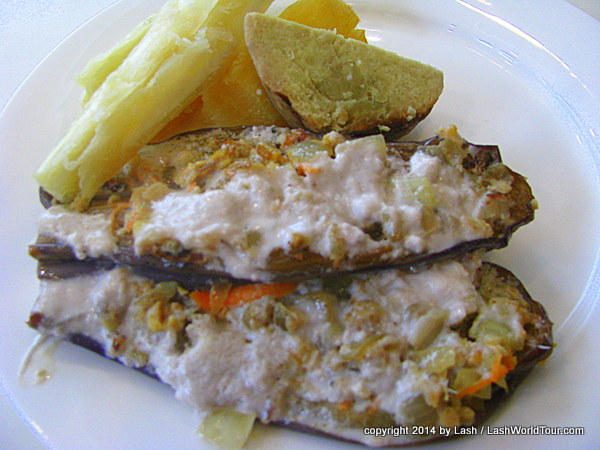





 Hi! I'm Lash, an American nomadic world traveler who's been traveling solo since 1998. I’m passionate about traveling the world nomadically and then sharing it all with you. I hope to inspire you to travel the world, to entertain you with tales from the road, and to help you reach your travel dreams. Welcome!
Hi! I'm Lash, an American nomadic world traveler who's been traveling solo since 1998. I’m passionate about traveling the world nomadically and then sharing it all with you. I hope to inspire you to travel the world, to entertain you with tales from the road, and to help you reach your travel dreams. Welcome! 




2 pings